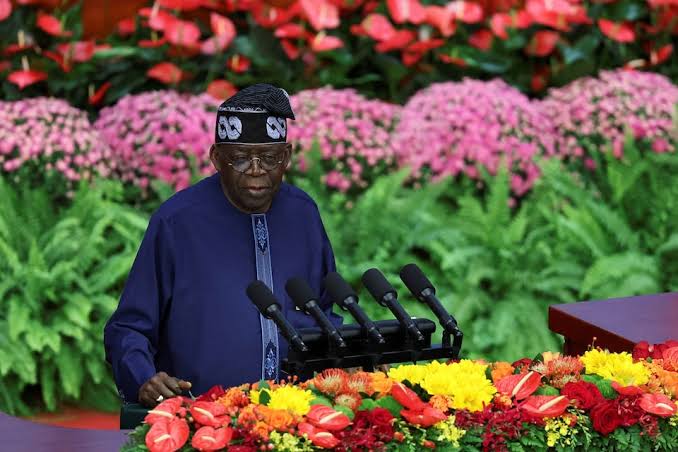Nigerian President Bola Tinubu marked his second anniversary in office on Wednesday, asserting that his economic reforms are yielding positive results. However, international organizations have cautioned about ongoing economic and security challenges.
Since taking office in 2023, Tinubu’s administration has implemented policies such as the removal of fuel subsidies, reductions in electricity subsidies, and two currency devaluations. These measures have contributed to a significant cost-of-living crisis, with inflation rates exceeding 23%.
“Our economic reforms are working. We are on course to building a greater, more economically stable nation,” Tinubu stated in an anniversary address.
Read more: Russia’s Victory Day: Military Might and Shifting Alliances on Display
He defended the policies as necessary to prevent a severe fiscal crisis, including “runaway inflation, external debt default, and a plunging Naira and an economy in a free-fall.”
Tinubu claimed that the fiscal deficit has narrowed to 3.0% of GDP in 2024 from 5.4% in 2023, due to improved government revenue. He also stated that inflation has begun to ease, although this is partly attributed to a rebasing of the inflation index.
The World Bank has acknowledged improvements in Nigeria’s fiscal position but warned that persistently high inflation remains a concern.
Tinubu also asserted that security has improved, citing reduced banditry in the northwest, safer highways, and farmers returning to their land. However, attacks and kidnappings continue, and insecurity persists in multiple regions.
Amnesty International reported on Thursday that at least 10,217 people have been killed in attacks by gunmen in the two years since Tinubu assumed office.
Tinubu’s All Progressives Congress (APC) party has endorsed him for a second term in the 2027 elections.





